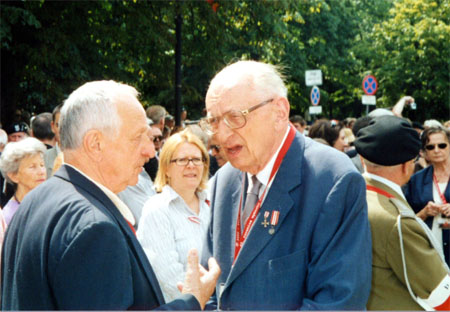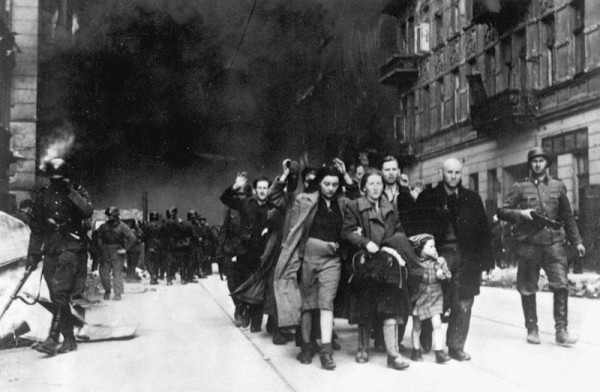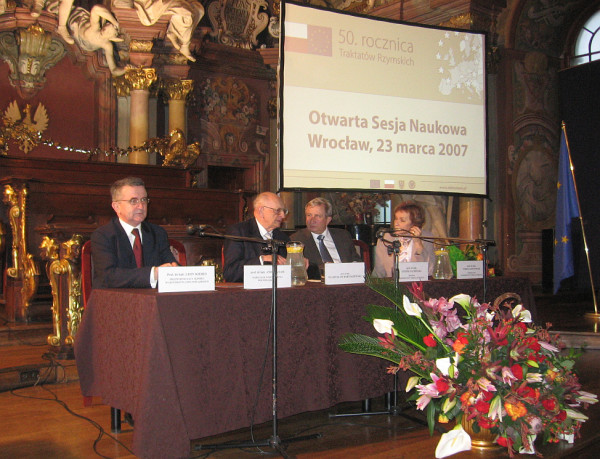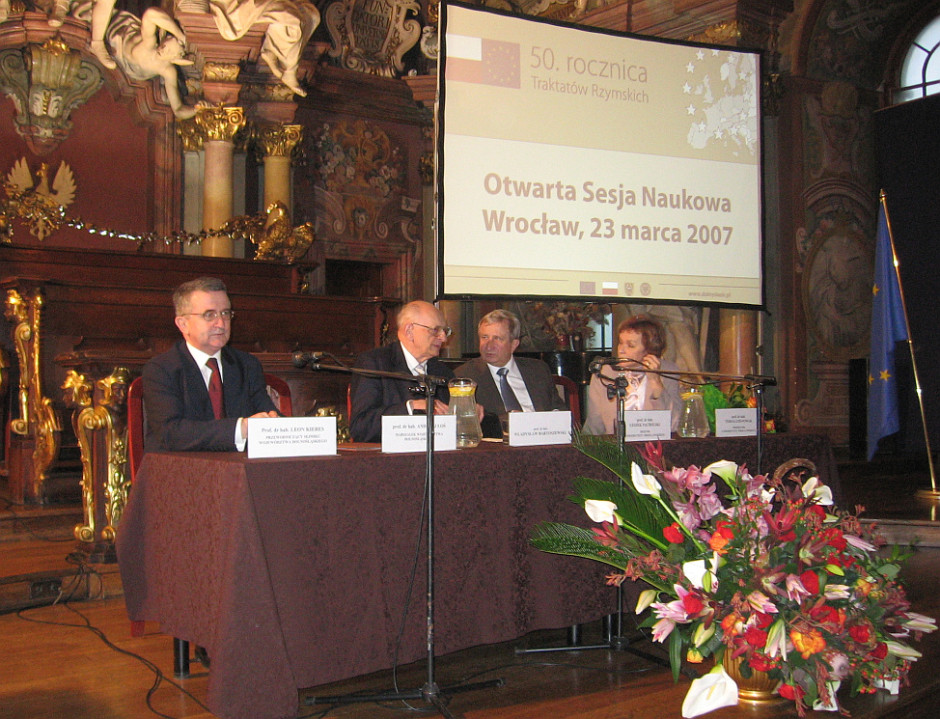Wladyslaw Bartoszewski, who died last week at the age of 93, was a Polish hero in the mould of the late Jan Karski.

A witness to the Nazi Holocaust in Poland, he risked his life to help Polish Jews when such assistance carried an automatic death penalty. And during the postwar period, when antisemitism was sometimes an issue in Poland, he worked assiduously to promote cordial and harmonious relations with Jews.
Appropriately enough, the last speech he delivered was at a recent ceremony to mark the 72nd anniversary of the heroic yet tragic Warsaw ghetto uprising, which he personally witnessed.
It erupted on April 19, 1943, following Germany’s decision to liquidate the ghetto, one of the last to be razed. Much of its dispirited Jewish population had already been deported to extermination camps, and now the Nazis wanted to finish the job. Although outmanned and outgunned, Jewish resistance fighters fought back courageously and ferociously, realizing they did not stand a chance of winning.

By then, Bartoszewski — a Catholic — had chosen sides.
Born and raised near a Jewish neighborhood in Warsaw, he was brought up in the company of Jews. “I spent my whole childhood among Jewish children,” he told Tablet, on online magazine, in 2013.
His parents were open-minded, liberal Poles who, he recalled, “never set me against anyone …”
After the German army occupied Warsaw, Bartoszewski, who had participated in the defence of the capital, was arrested. Along with several thousand Poles, he was sent to Auschwitz as a political prisoner.
Upon his release almost a year later, he wrote what was perhaps the first eyewitness account of conditions in Auschwitz. As well, he helped Jan Karski — a former Polish army officer and a courier for the Home Army — prepare a seminal report on the unfolding Holocaust in Poland. Karski submitted it to the Allies, prompting them to issue a stern warning to Germany that its leaders would be held accountable for crimes against humanity.
During these dark years, Bartoszewski worked for the Home Army’s information department, which sought to counter insidious Nazi propaganda. He was also involved with Zegota, the Provisional Committee for Aid to Jews. Composed of a cross section of Poles and Jews, Zegota saved thousands of Jews from the clutches of the Nazis.
“Zegota was an unusual phenomenon,” said Bartoszewski. “For the first time, Zionists, Bundists, Catholics, Polish democrats, socialists and peasants, Jews and Poles, united in a conspiracy against the German occupier and acted together.”
Yad Vashem — the Holocaust memorial and research and educational center in Jerusalem — honored him as a righteous gentile in 1965. About 6,000 Poles have been named Righteous Among the Nations thus far.
Bartoszewski’s altruism exacted an emotional toll, as he suggested. “I was never so afraid as when I helped Jews. Despite the fear, one has to do what has to be done. The right thing.”
Bartoszewski fought in the 1944 Warsaw uprising, a revolt the Germans crushed mercilessly. In the wake of the war, the new Communist regime accused him of being a spy, and he spent seven years in prison. Later, as a journalist, he wrote books about the war and on Polish-Jewish relations.
An early member of the anti-Communist Solidarity trade union, he thrived in democratic Poland, first as ambassador to Austria and then as foreign minister under two presidents.
A bridge builder, he devoted himself to improving Poland’s relationship with Germany and nurturing its budding friendship with Israel, which conferred on him honorary Israeli citizenship. And given his wealth of knowledge, he advised a succession of Polish prime ministers on Jewish affairs.
He always claimed he was a humanist rather than a philosemite. “I’m interested in justice,”he told Tablet. Summing up his credo, he added, “Ethnicity or roots have nothing to do with the evaluation of a person.”

Bartoszewski, who was to be buried in Warsaw on May 4, was a mensch who propagated important values like decency and empathy across religious and ethnic boundaries.
“This is a huge loss,” said Polish President Bronislaw Komorowski after learning of his passing. “A great Pole has left us.”
Bartoszewski was indeed a noble Pole whose words and actions left a deep imprint in Polish soil. Let us remember him.
